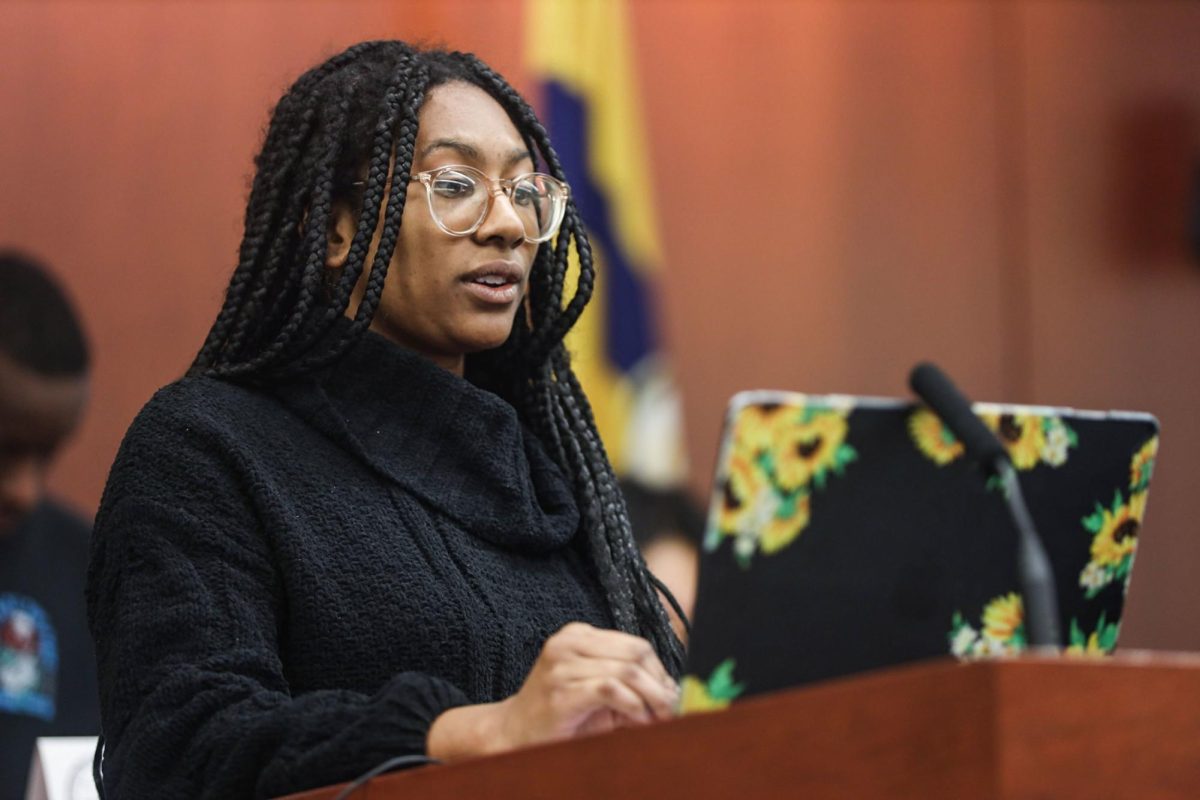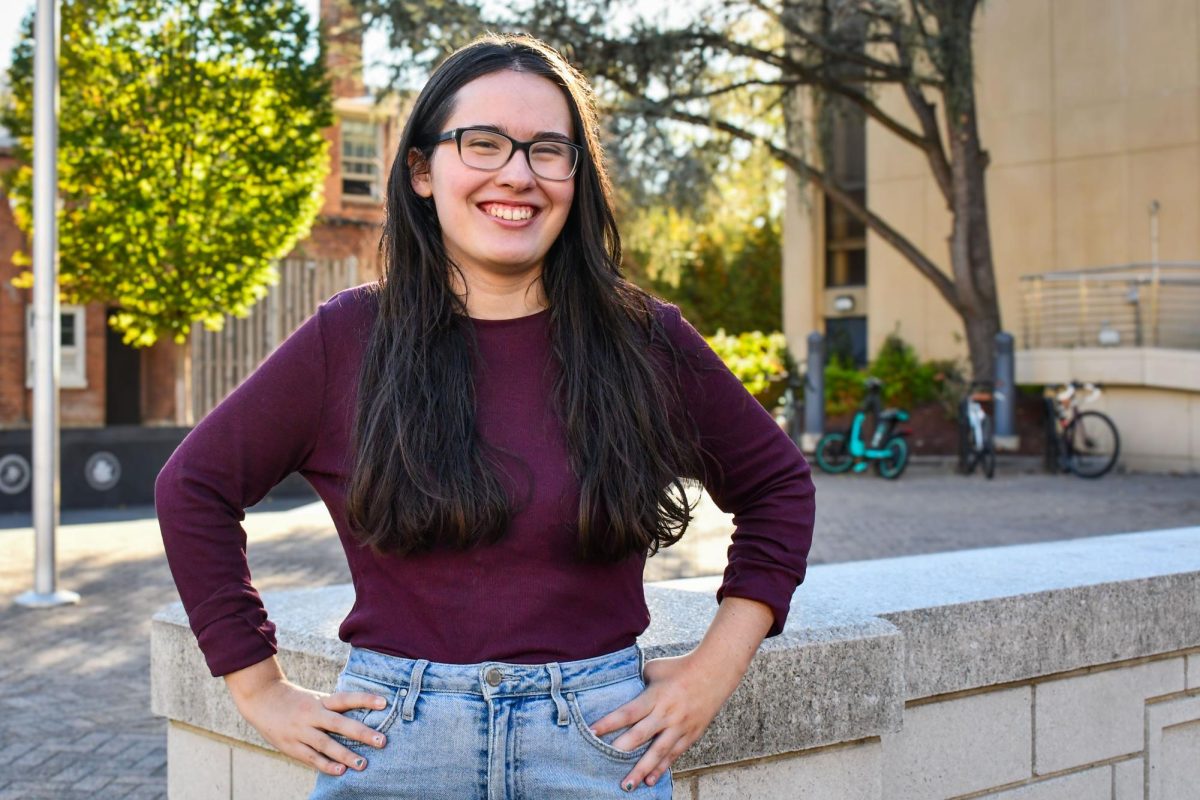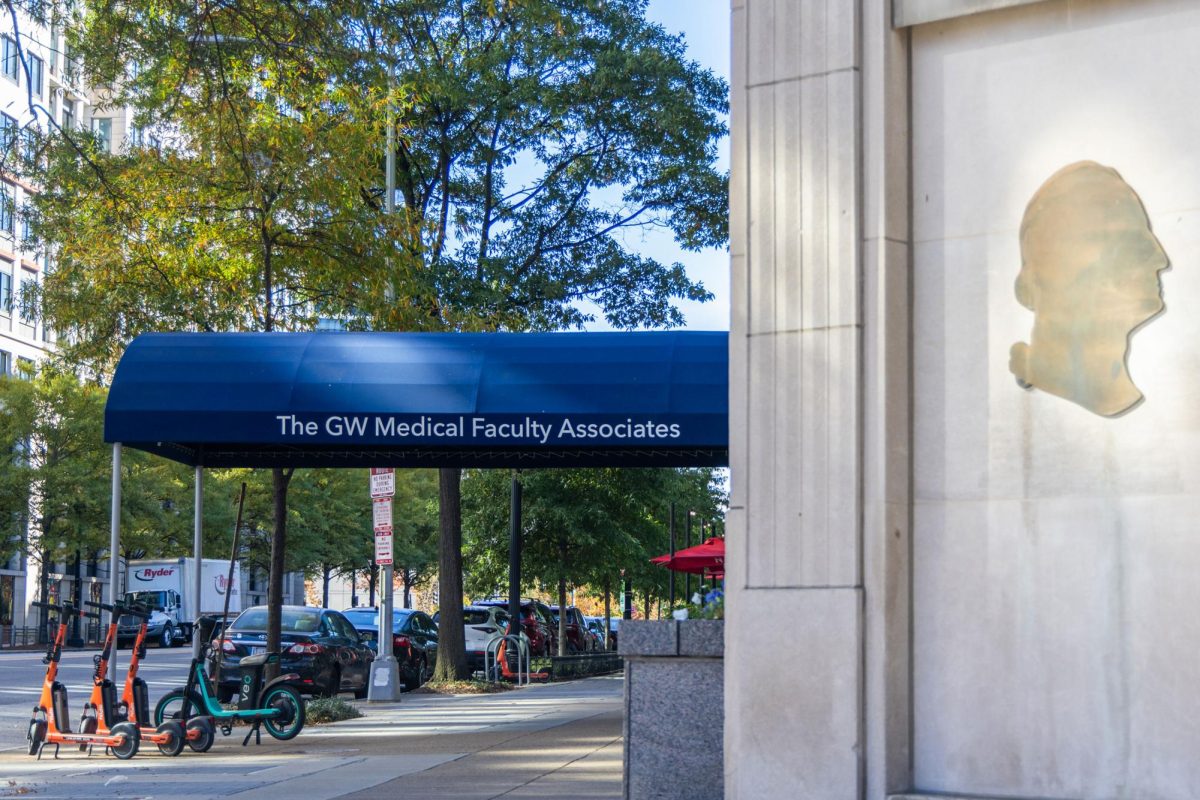The Student Government Association Senate rejected a bill Monday that would have created a graduate student assembly to grow communication between University administrators and graduate students.
The bill, which required two-thirds majority support and failed by a 14-13 vote, would have created an assembly for graduate students to provide input to the Graduate Student Life Committee, a SGA committee that proposes legislation on behalf of graduate students. SGA Sen. Simon Patmore-Zarcone (Law-G) sponsored the bill and said the assembly would allow graduate students to form a “better connection” with the University.
SGA Sen. Amy Cowley (ESIA-G) said she worried that forming a new assembly would divert attention away from graduate SGA seats, which she said could go unfilled.
Only four graduate students were officially on the ballot leading into this year’s election, but 12 graduate student seats were filled due to write-in votes. Graduate student participation has been historically low in SGA elections, with only five students running for 22 seats in 2023.
Cowley asked Patmore-Zarcone to clarify how the assembly would not “step on the toes” of graduate SGA committees with similar objectives as the proposed assembly.
“There’s really a lot more flexibility and a lot lower stakes that will be required for assembly members and also in that way the assembly is not really competing with the SGA because people who want that low level of engagement were never going to apply for the senate in the first place,” Patmore-Zarcone said.
After eight minutes of a discussion and question period between SGA senators about the bill, SGA Sen. Ethan Lynne (CCAS-U) motioned to move the discussion into an executive session that lasted around 30 minutes and ended in a secret ballot vote.
The SGA unanimously passed a bill that established April 10 as Half Way to Pride Day at GW.
SGA President Arielle Geismar, who co-sponsored the bill, said the day will be reserved for celebrating the LGBTQ+ community at GW. She said the SGA hosted the first Half Way to Pride Day last week in Kogan Plaza, where the SGA distributed resources about being queer on campus and gave out banned books about the LGBTQ+ community to students.
SGA Sen. Joseph Migliorisi (GWSB-U), who sponsored the bill, said by recognizing a pride day for LGBTQ+ students during the academic year, the SGA can send a message of equality and acceptance to the LGBTQ+ community on campus.
“Establishing pride days isn’t just about throwing a party or hosting an event, it is about taking a stand for the rights and dignity of our LGBTQIA+ community,” Migliorisi said. “It’s about saying that everyone, regardless of their sexual orientation or gender identity, deserves to feel safe, respected and valued on campus.”
SGA Vice President Demetrius Apostolis, who also co-sponsored the bill, said he wants to give the LGBTQ+ community a chance to celebrate while on campus during the academic year and hopes to incorporate the pride day into GW’s annual blossom bash celebration — a GW sponsored festival celebrating the bloom of the cherry blossoms.
“As a member of this community myself, I came from a high school area and from my hometown where being gay wasn’t super accepted,” Apostolis said. “Coming here and being able to find my identity has been a big part of my time at GW and I’m really excited to hopefully encourage others to feel the same way.”
Apostolis and Geismar congratulated president-elect SGA Sen. Ethan Fitzgerald (CCAS-U), vice president-elect Lynne and the newly elected senators following last week’s SGA election. Apostolis told the incoming members to stay humble, listen to the GW community and take time for themselves as they transition into their new roles.
“As a student leader on campus, we’re supposed to be a voice for every single GW student,” Apostolis said.
RaShonda Riley, the assistant director of counseling outreach at the Student Health Center, said the University’s new partnership with telehealth service provider TimelyCare will grow the number of appointment times and healthcare professionals available to students.
The senate’s Mental Health Assembly, which launched in September, worked with Counseling and Psychological Services to implement TimelyCare at GW, which was set to roll out March 4.
She said CAPS heard feedback from students who said AcademicLiveCare, the previous company GW partnered with for telehealth services, lacked therapist diversity. She said the new partnership will remain free to use for students and will offer medical, psychiatric and therapeutic assistance 24/7 through an app available on mobile devices.
Apostolis said the Financial Service and Allocations Committee has continued to work on finance reforms to change the general allocation process from a yearly general allocations process to event-based funding. He said under the new system, student organizations can request funding based on the amount of events they plan to hold. He said the bill will go to a vote at the next senate meeting but, if passed, will not go into effect until the 2025-26 academic year because the fiscal reform process takes a full year.
SGA senators unanimously passed a bill requiring members of the Physical Facilities and Urban Affairs Committee to visit GW campuses aside from Foggy-Bottom like the Ashburn and Mount Vernon campuses once each semester to collect information on dining options and access to transportation after members of the committee discovered a lack of accessibility on the Ashburn campus during their visit March 26. SGA Sen. Biyang Soh (CCAS-U), who sponsored the bill, said the committee’s trip to the Ashburn campus was likely “the first of its kind” and the SGA needs to advocate more for students on non-Foggy Bottom campuses.
“This bill seeks to essentially mandate that the PHUA Committee pay attention to the concerns of Ashburn students as well as Mount Vernon students,” Soh said.
Senators will hold their next meeting April 29 at 8 p.m. in the University Student Center Grand Ballroom.











